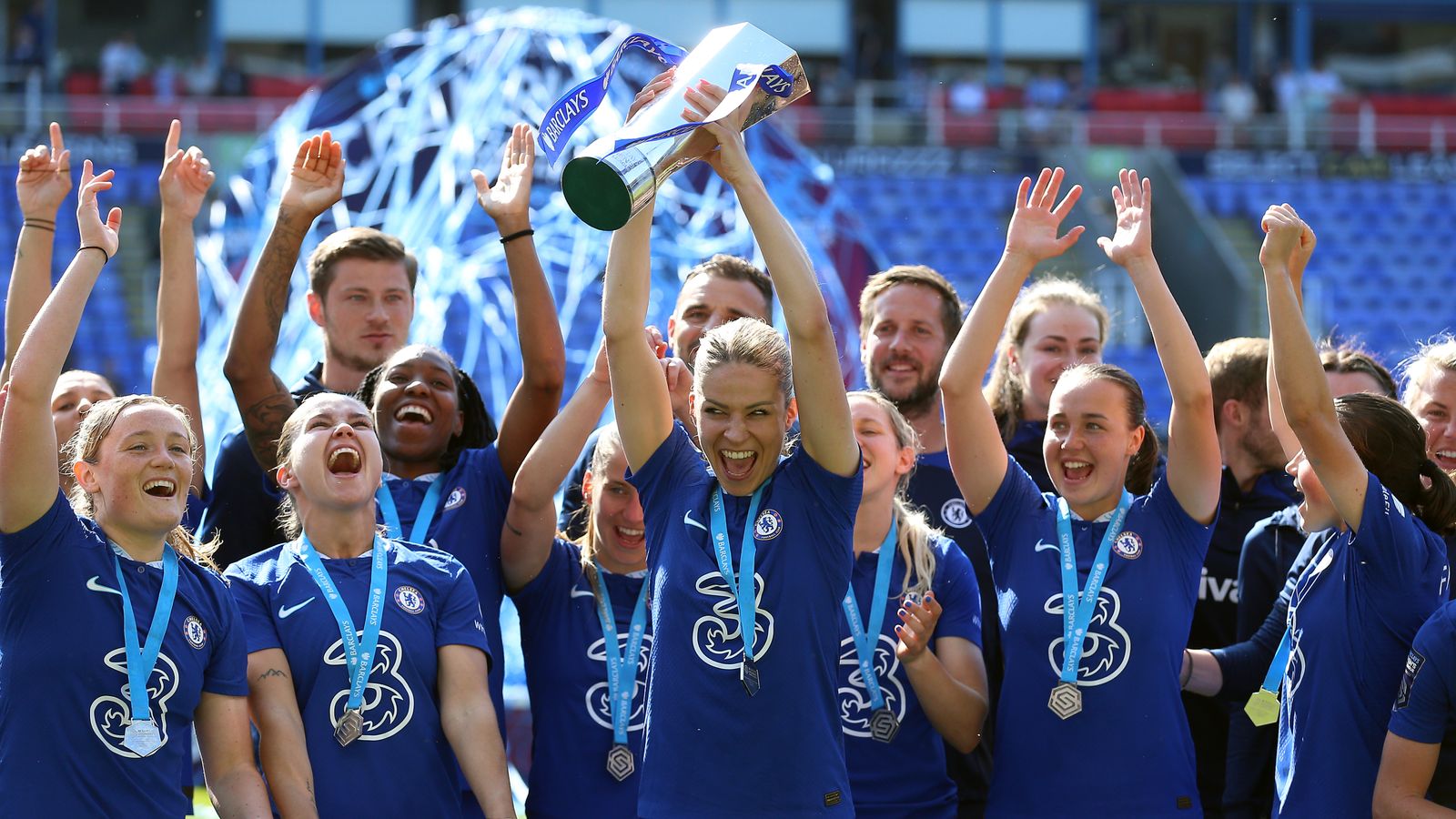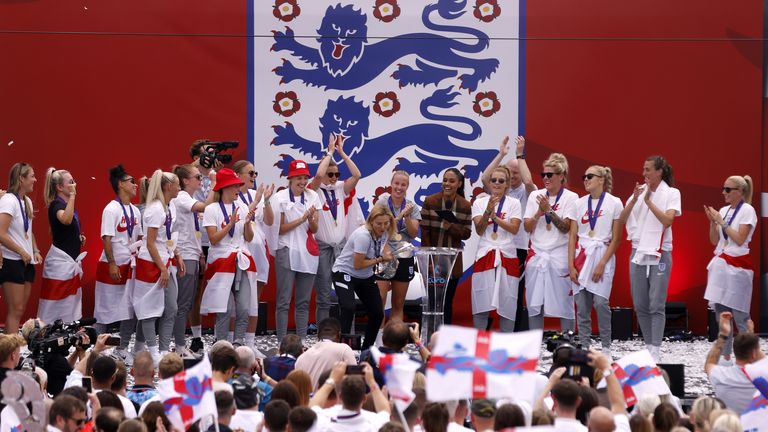Women’s football revamp thrown into doubt after rebellion


Hopes of establishing a unified commercial structure for the top two tiers of women’s football in England have been dealt a blow after Championship clubs indicated their rejection of a proposed funding and governance model.
Sky News understands that a majority of sides in the game’s second division have rejected proposals for a “newco” to take over the administration of the Women’s Super League and Women’s Championship from as early as next season.
The new entity was to have been funded with a £15m loan from the Football Association or, less likely, the Premier League, as the sport’s administrators seek to capitalise on an explosion of interest from fans in recent years.
However, club sources said on Tuesday that Championship clubs had overwhelmingly decided to reject the deal, even though they had been offered a 25% share of the combined leagues’ commercial income.
Their decision was made on the basis of their discontent over the abolition of their voting rights on all but a handful of issues, according to club insiders.
They added, however, that the proposed newco model was not yet dead, with the FA continuing to hold discussions with clubs about the optimum model for the future of the women’s professional game.
The split between the top two tiers could lead the WSL to press ahead with a standalone version of the new company in order for it to formulate a comprehensive broadcast rights package ahead of a tender process expected to begin early next year.
The WSL is led after seven games by Chelsea, with Arsenal in second place and Manchester City a further three points behind.
The division below is led by Charlton Athletic.
Advertisement
The vote on the future structure comes as the FA lines up Nikki Doucet as the first chief executive of the women’s professional game in England.
She is widely expected to take the role, although not until a newco is in place.
The ‘newco’ being established to oversee the WSL and the women’s Championship will run the professional game on a standalone basis.
In September, Dawn Airey, the media executive who chairs the WSL and Championship, said she had set an ambition of the WSL becoming the world’s first £1bn-revenue women’s competition within a decade.
“That isn’t a figure we just plucked from the air, it is based on a pretty decent and detailed business plan for over the course of the next 10 years,” Ms Airey told the media.
“We look at the growth of attendances, we look at the growth of engagement and broadcast, we look at the increased interest in sponsorship and marketing opportunities, and then we start being more imaginative about what attending a women’s game means. Not just watching the game, but everything that goes on around it, is there potential for clubs to think differently about their revenues?”
England’s victorious Euro 2022 campaign and its narrow defeat to Spain in last month’s Women’s World Cup final have further fuelled public interest in the sport, with attendances at record levels.
Last year, the WSL board proposed re-engaging investment bankers at Rothschild to evaluate other sources of capital to support the sport’s growth.
Bridgepoint, a private equity firm which this year approached the England and Wales Cricket Board with a proposal to buy a stake in The Hundred, approached the FA about investing in the WSL in 2020.
Private equity investment is not thought to be under active consideration at this point.
The FA declined to comment.